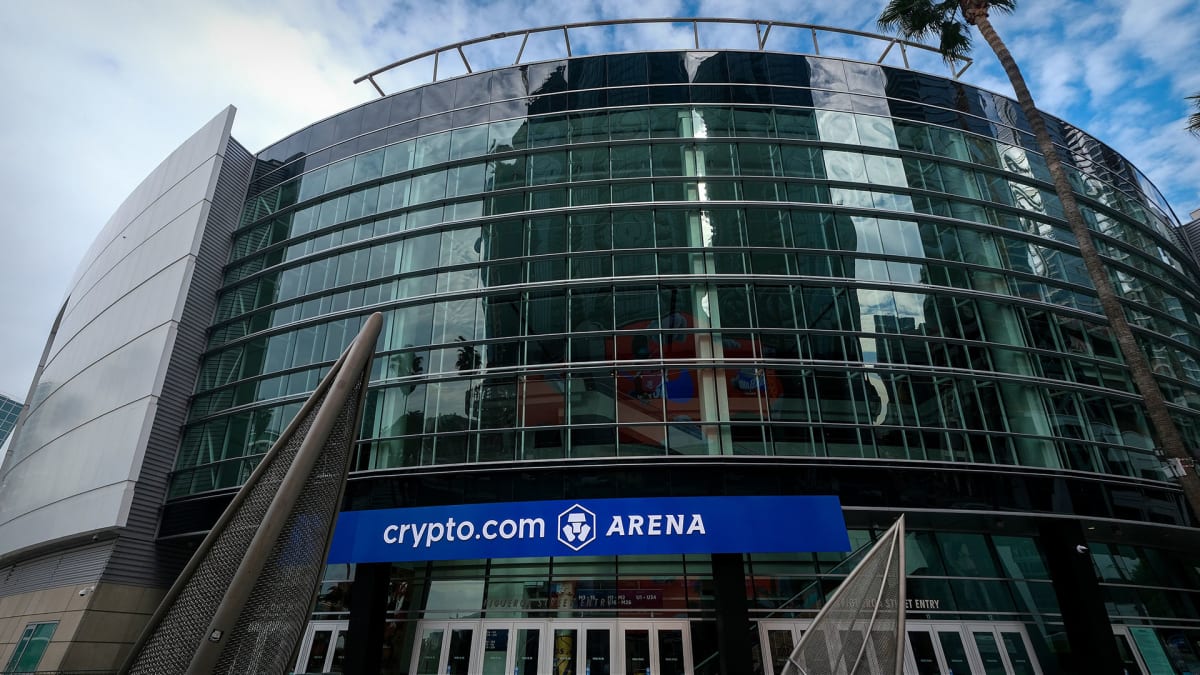
There are few things in the world that bring people together more consistently than sports.
Billions of people around the globe are expected to watch the World Cup together this month. Due to its popularity, sports lend an air of legitimacy to anything attached them.
This is why governments are willing to shell out untold billions of dollars in tax revenue to build sports cathedrals for billionaires who could easily finance their home arenas on their own.
That transferred legitimacy is also why companies are willing to spend hundreds of millions for the naming rights to those arenas.
“Growth to 70 million users is not possible without some investment into brand awareness," Crypto.com CEO Kris Marszalek said over the weekend during a YouTube interview defending the companies own spending on arena naming rights.
When Crypto.com purchased the naming rights for the sports and entertainment arena in downtown Los Angeles last year in a reported 20-year, $700 million deal, the benefits were nearly immediate.
At the beginning of November 2021, there were just over 2,000 active addresses for Cronos, Crypto.com's exchange token. In the days following the sponsorship announcement, the number of active addresses jumped to nearly 10,000, according to Coindesk.
Over the weekend, the Miami Heat ended its 19-year $135 million sponsorship with FTX after the exchange announced that it is filing for bankruptcy.
But bad stadium naming deals aren't exclusive to the crypto industry, and sports history is littered with disastrous naming rights deals.
Buying Legitimacy
The overwhelming majority of companies that have the upfront capital needed to make these stadium deals are legit.
Think FedEx (FDX), Gillette, MetLife (MET), and Mercedes-Benz.
But every once in a while, imposters are able to buy their way into the scene. Here's a list of some of the biggest, non-crypto naming rights disasters.
- MCI Center
When Washington Wizards and Washington Capitals patriarch Abe Polin completed the construction of his stadium in downtown D.C. (with private money by the way) it marked a new era for the sports in the town.
Telecom giant MCI purchased the rights to the new stadium in 1997, the same year it completed its merger with Worldcom, making Worldcom the second-largest long-distance phone company in the country.
By June 2002 the FTC was investigating the company for fraud and the MCI/Worldcom's demise was well on the way. Verizon acquired MCI in January 2006 and took over the naming rights to the stadium, which is now known as CapitalOne Arena.
- Enron Field
Enron is one of the most infamous business collapses in U.S. history, but lost in the annals of time is the company's 30-year, $100 million naming rights deal with MLB's Houston Astros that was signed in 1999.
By 2002, the company's status as one of the most infamous corporate collapses ever had been cemented and its naming rights deal was in the waste heap. The Astros bought the naming rights for its stadium back from Enron for $2.1 million.
- Adelphia Coliseum
The era from 1999 to 2002 was rough for telecommunications companies and Adelphia Communication was another one that fell during this time. By 2002 the company filed for bankruptcy amid a corruption scandal.
But before then in 1999, Adelphia purchased the naming rights for the Tennessee Titans stadium in Nashville for a reported $30 million over 15 years. After the company's bankruptcy, Adelphia Coliseum was simple known as the Coliseum for four years.
- PSINet Stadium
PSINet was one of the first commercial internet service providers during the dotcom pre-bubble era. Before the company filed for bankruptcy in 2001, it purchased the naming rights to the Baltimore Ravens stadium in 1999.
PSINet Stadium reverted back to Ravens Stadium following the company's collapse. M&T Bank bought the naming rights in 2003, signing a 15-year $75 million deal. The bank renewed that contract in 2014 for another 10 years and $60 million.
For a more complete list of stadium naming rights disasters, check out this Twitter thread.







